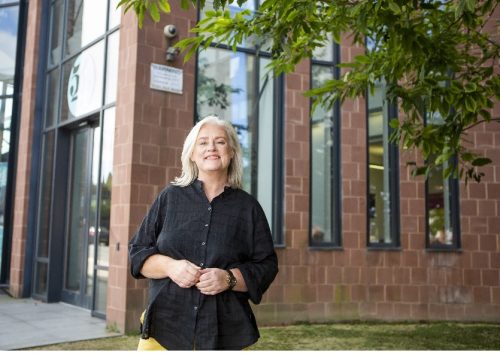Social enterprise vital to post-COVID-19 recovery

A new report offers fresh research on the positive impact of social enterprise interventions in developing skills and creating employment opportunities, especially within disadvantaged areas.
Commissioned by the Enterprise Research Centre in partnership with Liverpool-based The Women’s Organisation, the role of social enterprise in developing skills and creating employment opportunities in the UK has been launched.
Published as the first in a series of five State of The Art (SOTA) Reviews, the report outlines how social enterprises can play a pivotal role in the post-COVID-19 recovery through improved funding mechanisms and updated policy.
Within the review, author Prof Richard Hazenberg, explores the relationship between social enterprises and education, training and employment to identify the clear benefits of the involvement in building community cohesion, and urban regeneration.
Each of the five reviews tackle individual key themes in relation to social enterprise, including employment and skills opportunities, diversity and inclusion, and environmental sustainability.
The Women’s Organisation chief executive, Maggie O’Carroll, said: “Having a robust evidence base is critical to effective policy and investments decisions.
“We are very pleased to be working with the Enterprise Research Centre and to be able to utilise its expertise. These reviews provide important insights on how the social economy is at the forefront of the UK’s economic and social recovery.”
One of the primary methods in which social enterprises support upskilling and employment creation is by focusing on the creation of social value, particularly in disadvantaged areas. The effects of the COVID-19 pandemic are already having a disproportionate effect on socially excluded populations.
In the UK it is estimated there are 100,000 social enterprises accounting for more than £60bn of UK GDP and employing 1.44 million people. Further, it has been estimated that if the economy was dominated by social enterprises rather than shareholder dominated businesses, four million more people would be being paid the real living wage and £118bn of profits per annum would be reinvested back into society.
The SOTA Review concludes a number of key recommendations to harness the significant potential of social enterprises. These include recognising social enterprises as sustainable business platforms and repositioning them to sit within the Department for Business, Energy and Industrial strategy (BEIS) to allow for increased government partnership and cooperation.
The six key recommendations to further improve the positive impact of social enterprise in developing skills and creating employment opportunities in the UK are:
- Focus on Social Value – ensure that provision within the Work and Health Programme (and future UKSPF programmes) is focused on quality and social value, as much as best price and organisational size
- Post-COVID Skills and Employment – produce a blended approach that supports small local providers as well as large, centralised programmes with few employers would help to deal with high unemployment, while ensuring the most disadvantaged are not left behind
- Promoting Equality, Diversity and Inclusion (EDI) in Employment – social enterprises, with their inherent focus on driving equality and creating social value, are perfectly placed to lead work in improving equality and diversity in the workplace
- Employee Ownership of Public Services – greater/continued support for employee ownership models. These models of social enterprise delivery of public services could help protect, and even grow, employment in non-statutory public services that could otherwise be under threat post-COVID.
- Department for Business, Energy and Industrial Strategy – increased BEIS support for the development of social enterprises, with recognition that social enterprises offer sustainable business platforms that can create good quality employment within local communities
- Growing the Green Sector – social enterprises should be recognised as a fundamental element in the Government’s drive towards growing the green sector, particularly with the renewed focus on meeting our climate change obligations and ensuring that the UK is carbon neutral by 2050
Dr Vicki Belt, deputy director of the Enterprise Research Centre at Warwick University Business School, said: “COVID-19 is having a huge impact on businesses and communities across the country. As we look to recovery, social enterprises – which have been a real success story in recent years – have the potential to play a key role.

Dr Vicki Belt
“The ERC is delighted to be working in partnership with the Women’s Organisation to produce a new set of SOTA reviews on focusing on social enterprise. We launched our SOTA review series in response to the growing demand from policymakers for concise summaries of knowledge on topical issues in enterprise research.
“There are now over 40 reviews in the series. This new set of five reviews will fill several important knowledge gaps.”








